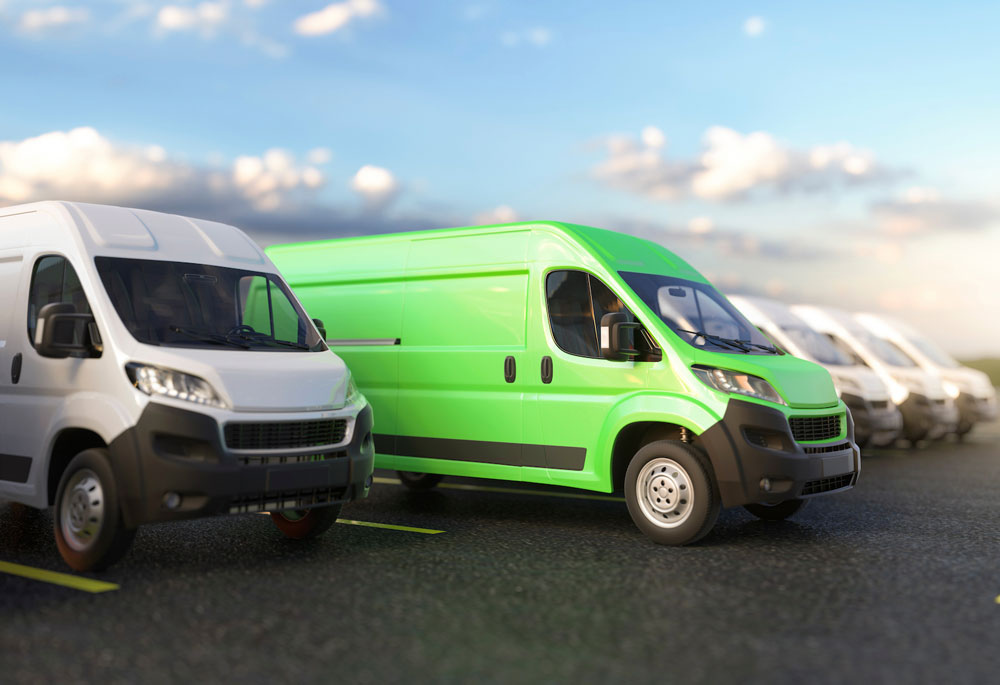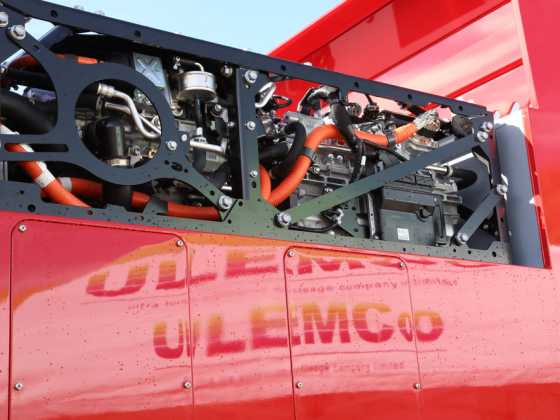The relaunch of the Clean Van Commitment

The Clean Van Commitment is a public commitment for fleets to switch petrol and diesel vans 3.5t and under to electric by 2027, and over 3.5t by 2032. Recently relaunched under the Energy Saving Trust, we look at the initiative and how it is helping van operators transition to electric, as well as stimulate the market by showing the demand is there
The Clean Van Commitment is a public commitment for fleets to switch petrol/diesel vans 3.5t and under to electric by 2027, and vans over 3.5t by 2032, helping organisations show leadership in tackling air pollution and climate change.
It was launched by Global Action Plan in 2018, but administration of the scheme has been taken over by the Energy Saving Trust, who will be offering support to companies who make the pledge to electrify their van fleets.
Vans remain the most popular class of commercial vehicle and are one of the fastest growing vehicle registration types in the UK. However, vans contribute 36 per cent of the UK’s road transport nitrous oxide emissions.
Nearly 9,000 battery electric vans were registered in 2022, a year-on-year increase of 55.7 per cent. Yet currently, only one in 18 van registrations are categorised as an EV as opposed to one in nine passenger car registrations.
Why the reluctance?
According to Ford’s latest Go Electric report, almost half (44 per cent) of van drivers believe they wouldn’t be able to fit charging time into their working schedule.
This may be because of the lack of charging options available, with only 20 per cent of respondents saying there are always charging points available at work, and over half (52 per cent) saying they don’t have access at home. On top of this, only 42 per cent of van drivers said they knew how to charge an electric vehicle.
The report, which includes the views of 500 van drivers in the UK, found that range anxiety is seen as one of the main concerns of van drivers, with the average range of an electric van thought to be under 70 miles.
Drivers of company owned electric vans were also concerned about being out-of-pocket with 71 per cent saying they’re unsure how they’d get reimbursed for electricity costs if they charged their company vehicle at home. The outright cost of new vehicles was the biggest financial concern, cited by16 per cent.
For businesses, almost one-third (29 per cent) stated that the initial infrastructure cost of introducing electric vans would be too much of a burden for themselves or their business.
The report found that there is optimism around the future of electric vans however, with almost half (49 per cent) believing electric vans will be the most common type of van on Britain’s roads within the next 10 years – with only nine per cent disagreeing. On this, more than a third (36 per cent) said they or their employer plan on switching to electric vans within the next four to six months and nearly two-fifths (38 per cent) said they thought it was a smart investment.
Evolving market
One of the concerns holding back van operators is whether the vehicles are fit for purpose for their operational requirements.
Mitie, for example, said at the time of making the Clean Van Commitment, that they would start by replacing small diesel vans because there were no workable solutions to replace their larger vehicles, which had heavy loads used by mobile engineering teams. But demonstrating how the market has evolved, the company has now taken on a fleet of large zero emission vans – Vauxhall Vivaro-es – which have adequate range and payload for the company.
Government incentives
While the government has now ended the plug-in car grant, saying it has done its job of stimulating the market, it has retained grants for large and small vans, as well as HGVs.
The grant can be used for small vans less than 2,500kg gross vehicle weight, that have CO2 emissions of less than 50g/km and can travel at least 60 miles with no emissions. The grant will pay for 35 per cent of the purchase price for small vans, up to a maximum of £2,500.
The grant for large vans is for vehicles that are between 2,500kg and 4,250kg gross vehicle weight, have CO2 emissions of less than 50g/km, and can travel at least 60 miles without any emissions at all. Again, the grant will pay for 35 per cent of the purchase price for these vehicles, up to a maximum of £5,000.
Investing in electric
Lyreco, a company that signed the Clean Van Commitment, has recently invested £2.3million in the expansion of its electric fleet of vans, taking its number of electric delivery vehicles from 17 to 67.
50 new Ford E-Transit electric vans have been purchased to join its existing 17 Renault Master Z.E all-electric light goods vehicles. The Ford E-Transits provide a real-world range and carrying capacity which has allowed us to utilise EV technology on a much wider range of its deliveries than before. This development, combined with seeking to comply with legislation concerning vehicle emissions ahead of time, has meant that the Lyreco EV Fleet is now planned to be deployed across 13 of our 24 Regional Distribution Centres across the UK, in areas including Dartford, Edinburgh, Manchester and Oxford.
The vans at the Lyreco National Distribution Centre site in Telford will be charged by electricity generated by its own renewable energy solar panel-powered charging stations. Lyreco has invested more than £124,000 in charging infrastructure across the Regional Distribution Centre network to ensure that vehicles are charged taking advantage of REGO (Renewal Energy Guaranteed Origin) electricity. Plans are currently being put in place to install charging stations at Lyreco’s remaining sites in 2023.
Acquisition of the new vehicles is in line with Lyreco’s goal to become completely carbon neutral by 2030.
Peter Gojka, building services manager, Lyreco UK & Ireland, said: “There will come a point when businesses are forced to change. Our aim is to lead the charge and we have paid great attention to how our new electric delivery vehicles can bring the greatest benefits to our customers and our operations right now.”
Sparking change
The transition to zero emission vans requires cooperation between fleet operators, government, manufacturers and the energy industry. The Clean Van Commitment will help speed up the the transition to electric vans by showing their is serious market demand for such vehicles.
Signatories of the Clean Van Commitment receive industry news, funding opportunities, case studies, policy updates and resources. They get the opportunity to engage in user forums for B2B knowledge sharing with industry stakeholders. They will also receive invitations to roundtable events with industry experts and manufacturers to discuss current issues and needs. What’s more, they will be able to participate in masterclasses tailored to their specific challenges and barriers in the transition to zero emission vans.






